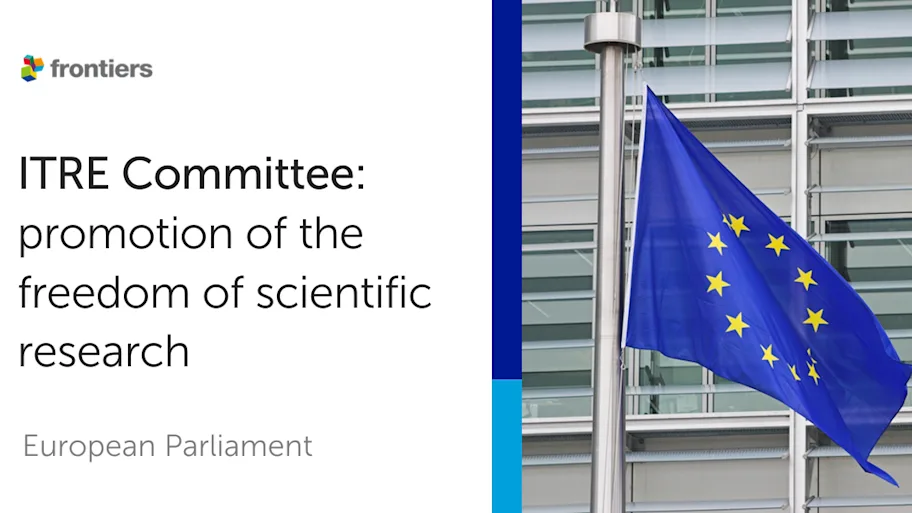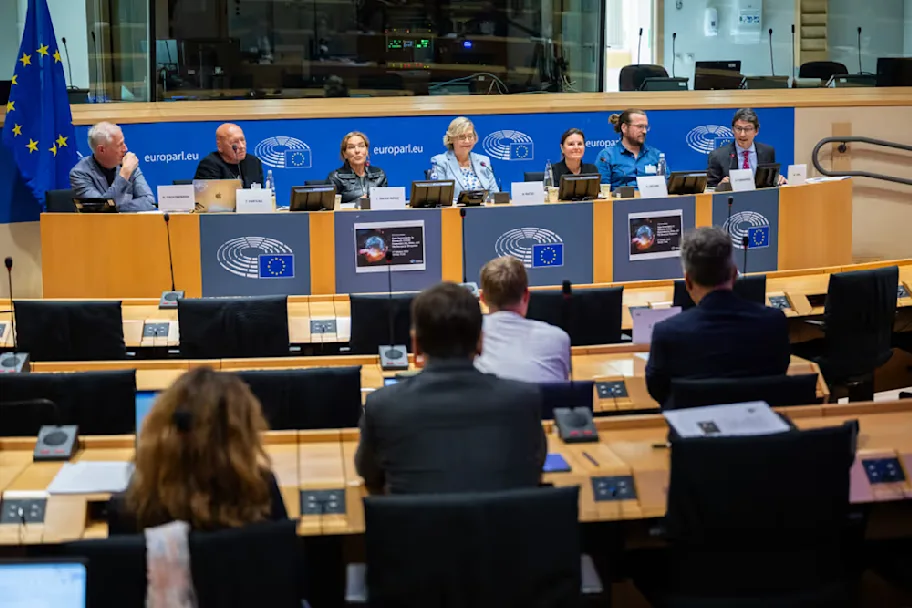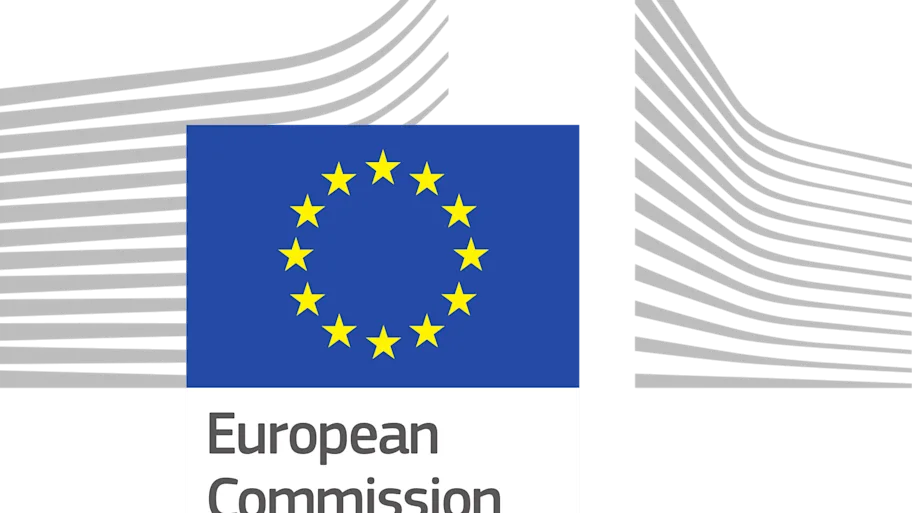
- Science news
- Frontiers news
- Make openness Europe’s scientific strength: Frontiers urges action at European Parliament
Make openness Europe’s scientific strength: Frontiers urges action at European Parliament

Speaking at the European Parliament’s Panel for the Future of Science and Technology (STOA) workshop "Data Sovereignty in Research: Global Dependencies, Risks, and the European Response", Mehmet Toral, Chief Corporate Officer and General Counsel of Frontiers, encouraged Europe to look beyond guaranteeing data resilience and access, and continue to position itself as the global leader in science.
Toral stressed that academic freedom thrives on openness, noting that open access to data and knowledge not only protects researchers’ independence but also empowers the next generation of scientists everywhere.
Dr Thomas Hartung, Field Chief Editor of Frontiers in Artificial Intelligence and Professor and Chair at the Bloomberg School of Public Health at John Hopkins University, delivered the keynote “ScAInce vs Science: Dependencies and Risks”. He stressed:
“Europe needs data sovereignty. It is not simply where the servers sit, but who decides how data are governed, shared, and reused. This is critical for being part of the technological revolution.”
But he warned that without open science in principle and practice, data sovereignty is meaningless and Europe’s ability for science to capitalize on AI will fail:
“Today only 20% of biomedical articles are fully open access and usable by AI — meaning machines are training on just a fraction of our knowledge. Education and incentives are vital so the next generation of scientists apply open science principles.”
Toral noted the need to back resilience with infrastructure, citing European initiatives to mitigate access being cut to databases like PubMed (the world’s largest medical database) — such as the Open Life Science Publication Database (OLSPub), supported by Frontiers and run by ZB Med. He emphasized:
“Data sovereignty is not simply about where data are physically stored, but how they are governed, shared, and reused.”
Toral concluded by highlighting Europe’s role globally:
“Open data principles and open science principles are in no way in conflict with data sovereignty. Coupled with open access and open data, data sovereignty can be a core policy to position Europe as a guiding light in the world of science.”
The workshop brought together policymakers, researchers, and legal experts to debate how Europe can assert leadership in global data governance while strengthening scientific collaboration.
Importantly, he also pointed to the importance of open data beyond science, commenting:
“In the social sciences too, data has always been a battleground. Control over data is often used to control narratives and, at times, to discriminate against populations. Open data about minorities has been essential in addressing inequalities.
The EU stands for democracy, transparency, and inclusion. By championing open science, Europe leads by example, showing that when knowledge is shared openly and responsibly, societies become more resilient, innovative, and just.
Data sovereignty is not simply about where data are physically stored, but how they are governed, shared, and reused. In Europe, this means data should be handled according to European values, including transparency and accessibility under the Open Science framework.”
Building on this, Toral underlined that infrastructures supporting data sovereignty rely on free access to open science.
Agreeing with Hartung, Toral argued that resilience is not only about infrastructure but about “rules of engagement” guaranteeing “long-term accessibility, provenance of data, and portability across platforms.” For Toral, open science is the foundation of both resilience and sovereignty:
“Open science is the glue that makes sovereignty and resilience compatible rather than contradictory.”
About Frontiers
Frontiers is a leading research publisher. Our role is to provide the world’s scientists with a rigorous and efficient publishing experience. Scientists empower society and our mission is to accelerate collaboration and discovery by making science open – enabling researchers to find the solutions we all need for healthy lives on a healthy planet. Powered by custom-built technology, artificial intelligence, and a collaborative peer review, our community journals give experts in more than 1,800 academic fields an open access platform to publish high quality, high impact research. Through our outreach work to build strong partnerships with business, policymakers, and educators, we’re leading the transition to open science.





